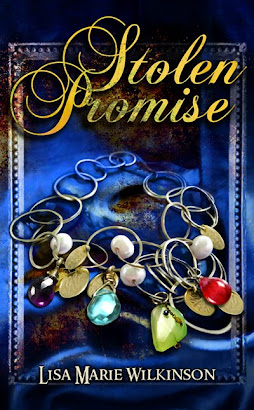
The latest release by Judith James continues to fulfill the promise hinted at by this talented author’s celebrated debut novel, “Broken Wing,” and further realized by her subsequent historical romance releases.
“The King’s Courtesan,” set in the Restoration era world of Charles II, is an entertaining companion novel to its predecessor, “Libertine’s Kiss.” Once again, Ms. James uses her uncanny insight into the human condition to populate her novels with living, breathing characters whose trials and triumphs make the reader feel emotionally invested in the outcome of the story from page one.
When we first meet Hope Mathews, she is a starry-eyed adolescent dreaming of rescue by a gallant knight, but when we next meet Hope as an adult, she has been the victim of betrayals by those closest to her; beginning with the mother who sold Hope’s innocence to the highest bidder when Hope was fourteen. Despite the circumstances of her life, Hope’s purity of spirit and her beauty attract the attention of Charles Stuart and Hope is elevated to the position of King’s mistress, making her vulnerable to yet another betrayal when Charles decides that it wouldn’t be appropriate to have his notorious mistress residing at court when his Portuguese bride arrives.
Charles conceives of a plan to lend his mistress respectability by marrying her off to a titled gentleman and allowing her to rusticate in the country for a few months, after which Charles intends to recall Hope and her new husband to court, where he will continue his relationship with Hope under the noses of his new queen and Hope’s new husband. The gentleman selected for the honor of providing respectability and a title for the King’s mistress is Captain Robert Nichols, whose private obsession with meting out vengeance upon those responsible for his younger sister Caroline’s death makes him a dangerous choice.
Robert is presented with an offer he literally cannot refuse: marry Hope or permanently forfeit Cressly Manor, his family estate, to his nemesis, the last man still awaiting justice by Robert’s hand for the death of Caroline. An unsuspecting Hope is wed to a reluctantly complicit Robert during a colorful May Day celebration Hope has arranged for Charles’s pleasure, and the marriage is off to a rocky start as the newly married couple undertake the long journey to Cressly Manor. What follows is a poignant story of slowly earned trust, the banishment of old demons, and the healing power of love.
“The King’s Courtesan,” set in the Restoration era world of Charles II, is an entertaining companion novel to its predecessor, “Libertine’s Kiss.” Once again, Ms. James uses her uncanny insight into the human condition to populate her novels with living, breathing characters whose trials and triumphs make the reader feel emotionally invested in the outcome of the story from page one.
When we first meet Hope Mathews, she is a starry-eyed adolescent dreaming of rescue by a gallant knight, but when we next meet Hope as an adult, she has been the victim of betrayals by those closest to her; beginning with the mother who sold Hope’s innocence to the highest bidder when Hope was fourteen. Despite the circumstances of her life, Hope’s purity of spirit and her beauty attract the attention of Charles Stuart and Hope is elevated to the position of King’s mistress, making her vulnerable to yet another betrayal when Charles decides that it wouldn’t be appropriate to have his notorious mistress residing at court when his Portuguese bride arrives.
Charles conceives of a plan to lend his mistress respectability by marrying her off to a titled gentleman and allowing her to rusticate in the country for a few months, after which Charles intends to recall Hope and her new husband to court, where he will continue his relationship with Hope under the noses of his new queen and Hope’s new husband. The gentleman selected for the honor of providing respectability and a title for the King’s mistress is Captain Robert Nichols, whose private obsession with meting out vengeance upon those responsible for his younger sister Caroline’s death makes him a dangerous choice.
Robert is presented with an offer he literally cannot refuse: marry Hope or permanently forfeit Cressly Manor, his family estate, to his nemesis, the last man still awaiting justice by Robert’s hand for the death of Caroline. An unsuspecting Hope is wed to a reluctantly complicit Robert during a colorful May Day celebration Hope has arranged for Charles’s pleasure, and the marriage is off to a rocky start as the newly married couple undertake the long journey to Cressly Manor. What follows is a poignant story of slowly earned trust, the banishment of old demons, and the healing power of love.

Lisa Marie




